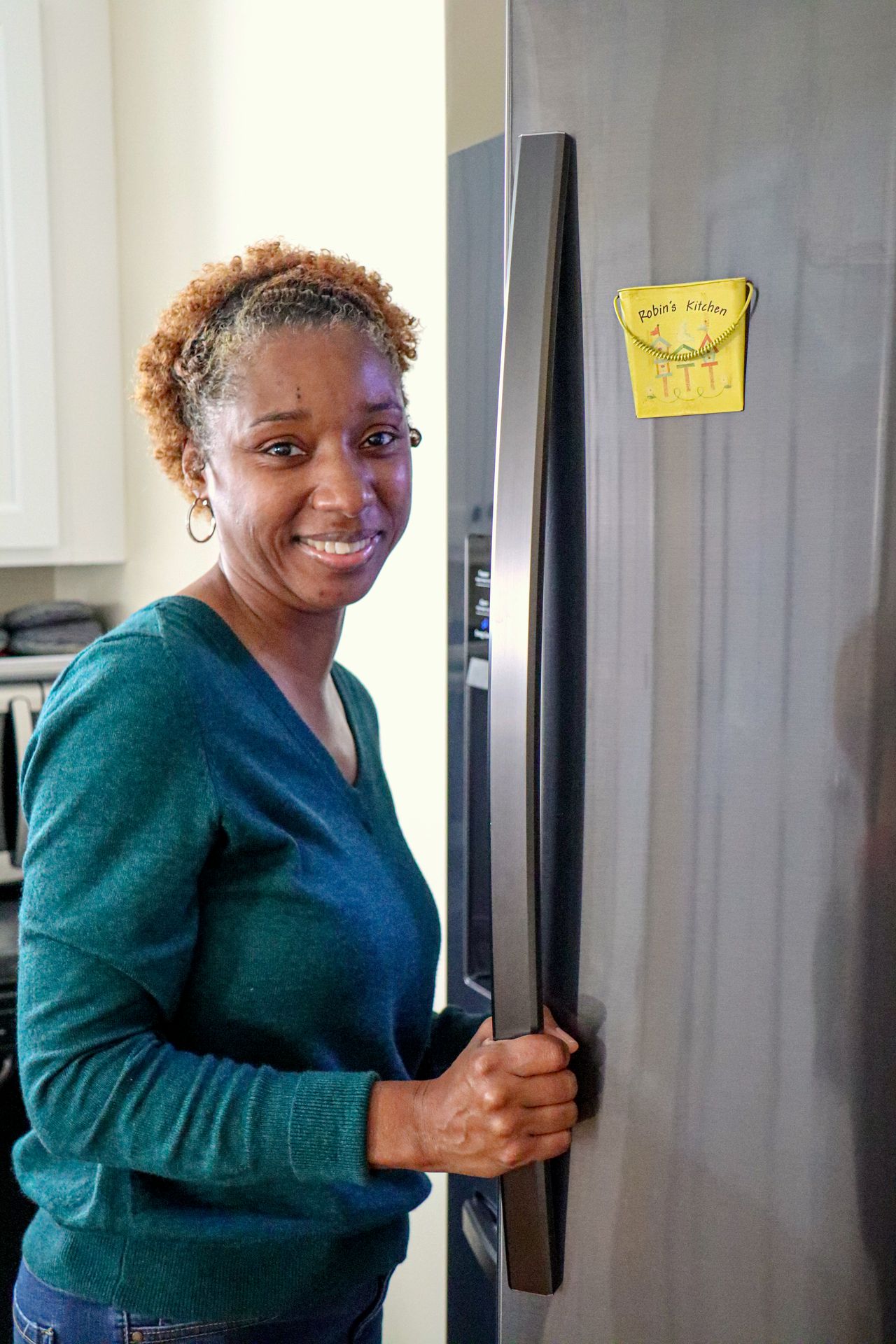Historic inflation and dramatic price increases across the country have stretched families’ budgets. Families are forced to choose between shelter, food, gas for their cars, and childcare, with 40% reporting going into debt to cover monthly costs.
These circumstances tend to weigh even heavier on Black families. The median Black household in the U.S. has one-tenth the wealth of the median white household due to the stripping of wealth from Black communities. This and the ever persistent wage gap Black women face, making 63 cents for every dollar white men make, means many Black families are behind financially before they can even start.
Unfortunately, I know this struggle firsthand.
For many years after my divorce, I lived in subsidized housing. Despite working at the University of Massachusetts Boston for more than 17 years, I was unable to stay afloat financially. I tried to be a good saver, but I simply never made enough to save.
Coupled with the debt I incurred to pay for my education and that of my daughter, I was at risk of going to jail in Dorchester due to unpaid debts. My sister helped me pay the court fines and collection fees, but this felt like an all-time low for me — things had to change.
There are people just like me across Massachusetts and across the country who work hard and push themselves every single day to survive and take care of their kids. And it’s a shame that anybody should have to struggle like this in one of the wealthiest countries in the world. Massachusetts residents should know there are programs that can help them to get ahead, rather than trapped in a cycle of poverty.
In fact, one of the most effective public financial saving programs to assist with ending asset poverty is also one of the least well-known.
The Family Self-Sufficiency program is America’s largest asset-building program for families with low incomes. Whenever someone enrolled in the program begins to earn more money and pays their rent increase, their housing provider will place that rent increase into the individual’s Family Self-Sufficiency savings account every month. These funds build over time and can be used for education, a new car, or even to start a small business.
Participants can enroll in Family Self-Sufficiency program like I did when I joined the FSS program with Compass Working Capital and Metro Housing Boston several years ago. Working with them, I received financial guidance and insights to achieve my goals. When I first graduated from the program in 2015, I had more than $11,000 in my FSS savings account and had increased my credit score to over 700.
I later re-enrolled with the program to work toward buying my own home, a goal I accomplished in 2021. I now have a place where my family can call home. I learned what I needed to do to get ahead, started saving for retirement, and am now teaching my youngest son financial best practices to prepare him. Working with Compass opened my eyes to all the other programs to help families like mine reach our goals.
This program works. To date, Compass has worked with nearly 4,500 other families to save $12.5 million.
Research has shown that Compass Working Capital participants’ annual household earnings were 23% higher on average three years after joining the program.
Unfortunately, the Family-Self-Sufficiency program is underutilized due in no small part to a lack of awareness and inadequate federal funding, among other challenges. Only about 57,000 households take part out of an estimated 2.2 million that could benefit from their program.
With inflation still looming, we need Congress to invest in more programs like the Family Self-Sufficiency program to assist families in climbing out of poverty.
With the ongoing budget negotiations, now is the time for Congress to commit to fully funding the Family Self-Sufficiency program so that families across the country can begin to save and get ahead.
Robin Valentine is a Massachusetts resident and graduate of HUD’s Family Self-Sufficiency Program.

